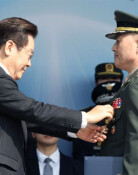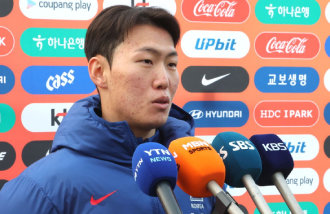Final Notes: To Wrap Up the Special Series
Final Notes: To Wrap Up the Special Series
Posted January. 09, 2004 23:16,
With its fifth installment, Washingtons Policy toward the Korean Peninsula Movers and Shakers, Dong-A Ilbos New Year special feature, ended today.
The series was originally planed to fully disclose what federal officials, think-tank researchers, and academics, who exert influence on policy-making toward the peninsula, are really up to in a series of interviews.
At a time when the reelection of President Bush, who publicly promised to overthrow the axis of evil, is highly likely, the fate of the peninsula is closely tied to their posturing.
In October of last year, Dong-A finalized a list of people whom we decided to interview and began to contact them. In early December, Dong-A sent reporters to Washington D.C. Among the 15 people who agreed to meet with us, two wanted to speak on condition of anonymity, citing their direct involvement in policy decisions toward the peninsula.
Their sound bite reverberating in the run of interviews from Washington was more serious than expected. Especially, hardliners boldly muttered about South Koreas policy toward the north. Some of them went so far as to refer to some members of South Koreas National Security Council as Taliban. Soft- and hard-liners said in chorus that the Korea-U.S. alliance is in crisis.
Dong-A planned to graphically describe these stories in the first two installments. In the third installment, we plan to run a story about who makes and how they make Korea policy in the Bush administration. We were set to run a story about divisions within the U.S. over the Korean peninsula policy, and as the fifth installment we decided to run a full-page interview with Lee Jong-seok, deputy secretary general of the NSC, who is responsible for policy toward the North Korean development of nuclear weapons.
On December 31, Dong-A submitted a verbal request to NSC for an interview over the phone. On January 2, it sent a written request by email as we were asked by the NSC spokesperson. On the afternoon of the same day, the NSC rejected the request and began to talk about legal action against us. On January 3, NSC issued a press release criticizing the New Year special feature. This occurred when the second installment was run.
Now that the series has ended, we are waiting for the legal action the NSC said it would take against us. Wed like to watch how the government will take legal issue with the special feature of ours.
The NSC said it would confirm the veracity of the quotes from those we interviewed. It suspects the very integrity of the press. How dare they think that we manipulated quotes of influential figures in Washington? Their way of thinking is just horrifying.
Even bellicose countries need to use diplomacy for each other. They need to talk and persuade their counterparts in the U.S. regardless of whether they like each other or not, since the U.S. effectively rules the world.
As the fourth installment showed, the U.S. Korea policy is in a quandary as divisions between hard- and soft- liners have been engulfed. How can they win Washington over to their case when they try to choose their own U.S. counterparts, based only on their own needs? How can we expect long-term policies from an institution which is so petulant that it began to babble about legal action against a newspaper feature series which has merely run half its course? Is this why they deserve to be called the Taliban? How can we leave the fate of national security in their hands? We are worried about the future of this country.
I hope the NSC goes ahead with legal action against us after confirming the veracity of our coverage as it publicly said. Otherwise, we demand an official apology. The NSC has disgraced Dong-A Il Bo and the journalists who planed the special feature. We will see how it will respond.
Sang-Young Kim youngkim@donga.com





![쓸개 파열로 “사흘 남았다” 판정받은 시인…18년뒤 “너를 아껴라” 속삭여[손효림의 베스트셀러 레시피]](https://dimg.donga.com/c/138/175/90/1/wps/NEWS/IMAGE/2026/01/08/133113134.1.jpg)

